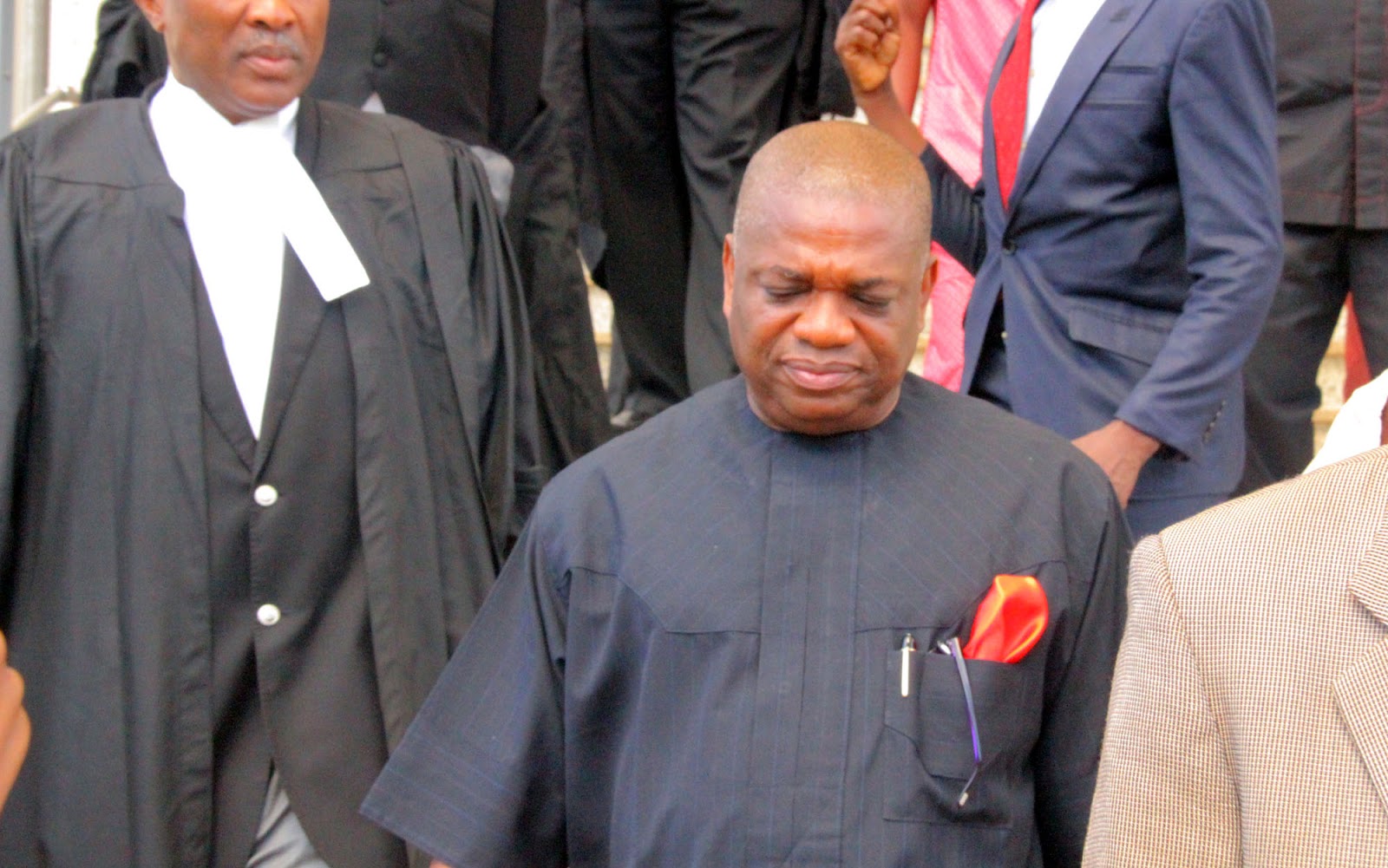Ladipo Sanusi|
Can a witness produced by the Economic and Financial Crimes Commission (EFCC) give evidence in the trial of the former governor of Abia State, Dr. Orji Uzor Kalu, and others?
Justice Mohammed Idris of a Federal High Court, in Lagos, is set to answer this question in his ruling tomorrow.
Kalu, alongside his company, Slok Nigeria Limited, and his former aide, Udeh Udeogu are standing trial before the court on an amended 34-count charge of alleged N3.2 billion fraud.
They had all pleaded not guilty to the offence.
At the resumed trial of the defendants, the EFCC’s prosecutor, Rotimi Jacobs (SAN), had called his witness, Mr. Onove Ogheneghe, into the witness box.
Lawyers to the defendants, including Chief Mike Ozekhome, Mr. Awa Kalu and Solomon Akumah, all Senior Advocates of Nigeria (SANs), however, objected to the witness giving evidence in the trial.
Urging the Court to disqualify the witness, both Akumah and Ozekhome said that the prosecution though listed the witness’ name in the Proof-of-Evidence, failed to include his statement in the Proof-of-Evidence.
The lawyers stated that by the Section 36(6) paragraph B, and Section 379(1) of Administration of Criminal Justice Act (ACJA), it is mandatory and fundamental for the prosecution to furnish the defense all the facilities which includes the witness’ statement.
They argued that not complying with the said Section amounts to trial by ambush.
They also argued that where the witness’ statement is not front loaded and included Proof-of-Evidence, such witness should not be allowed to give evidence.
Consequently, they urged the court to hold that the witness is not competent to give evidence in the trial of the defendants.
In response, Jacobs urged the Court to discountenance the submission of defendants on the ground that the witness was in court at the order of the Court.
The prosecutor informed the court that the witness, Onove Ogheneghe, was in court in compliance with the order of the Court. He added that though, the witness’ statement is not in the Proof-of-Evidence, the role played by him is the page 121-179 of the Proof-of-Evidence.
He further informed the court that some of the documents which were signed by the witness are in the Proof-of-Evidence.
He also stated that by the Provision of Section 241 of Administration of Criminal Justice Act (ACJA), the prosecution is at liberty to apply to court for issuance of Subpoena on a witness to bring with him the documents he has for his evidence. He added that the witness was effectively a witness of the court not of the prosecution.
He also stated that as at the time the charges were filed against the defendants in 2007, there was no provision for filling of witness’ statement, and that the ACJA which made mandatory for filling witness statement was introduced in 2015. He noted that the summary of information to be filed is applicable where there is information, but in the case of the prosecution’s witness there is no information to file.
He urged the court to allow the witness to give evidence in the trial of the defendants.
Responding on point of law, the defendants’ lawyers stated that the witness is not a witness of the court but of the prosecution, since it was the prosecution that compelled the Court to summon the witness to come and give evidence on its behalf.
They also stated that what the prosecution referred to in page 121-179 of the Prove-of-Evidence cannot qualify as the statement of the witness.
They insisted that the court should disqualify the witness from giving evidence in the trial of their clients.
0






